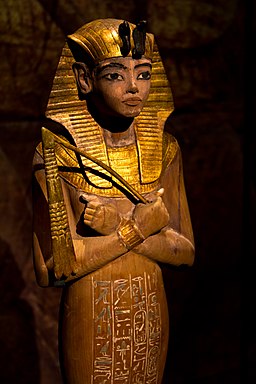This week I'm going to talk about a book that I didn't read and wish I had. However, I did see the movie and I loved it. The story is about an Indian family who, after suffering heartbreaking loss in Mumbai, move to the west to make a new life for themselves.
As Indian culture dictates, Papa is the head of the family and his decisions go. After the mother was killed in a terrible fire at their restaurant in India, they head west, first to England and then to France. After some glitches, Papa discovers the exact spot in a small French village, that he feels is perfect for his Indian style restaurant.
The catch is that it is right across the street from an ultra deluxe Michelin four-star restaurant. Enter the villain, Helen Miron as the owner of this high class establishment.
Since the advent of large, flat home screens, I don't often go out to see a movie. But there is the odd one that absolutely must be seen on the gigantic screen of a theater. The Hundred-Foot Journey is one of them. The scenery, both in India and in France is superb and deserves to be seen on the really big screen. Helen is perfect as the hoity toity restaurant owner and Om Puri is the strong willed Indian father. The gorgeous elder son, Hassan, is played by Mannish Davel, an actor who is highly attractive in any culture. I'm sure we will be seeing more of him in the near future.
I don't know how closely the movie follows the original novel, but I intend to give it a read to see for myself. In the meantime, if you see that it's still playing at a theater near you, or even fairly soon on netflix, I highly recommend it.
http://www.dreamworksstudios.com/films/the-hundred-foot-journey
Monday, September 29, 2014
Monday, September 22, 2014
The Hungarian Gold Train
I have been noticing a definite trend in historical fiction
lately for authors to write about the two world wars. Notably, first there are the
two series by the writing team of Charles Todd: one staring Inspector Rutledge
as a Scotland Yard detective recently returned from World War 1 and their
newest series about Bess Crawford who serves as a nursing sister in France as
well as sometimes in the Mediterranean war zone. There are other series as well
and they will be discussed in the future.
Today’s choice, however, is a new novel entitled “Love andTreasure” by Ayelet Waldman.
In the aftermath of WWII, Lieutenant Jack Wiseman is
stationed in Salzburg, Austria. His assignment is to guard and catalogue the
"gold train"--a trainload of treasure stolen by the Nazis from the
Budapest Jews during the Holocaust.
He falls in love with a young Jewish woman from Budapest and asks her to marry him, but she is determined to live in Israel and refuses his advances. Suffering a broken heart, he feels compelled to take a small pendant he finds among the jewellery on the train to remind him of her.
The story now skips ahead seventy years to when Jack is dying of cancer. He asks his beloved granddaughter to discover who the owner of the pendant was and to try to trace her descendants. This takes her to Europe where she falls in love with with an unscrupulous art dealer.
The final part of the novel goes back in time and tells the story of how the pendant came into existence. Told from the point of view of a doctor of psychiatry, this section seems to be completely out of place at this point.
The subject of the gold train has been well researched by the author and since it was new to me, I found it fascinating to read about. Both the characters and settings are well developed. However, the plot while intriguing jumps back and forth in time, which tends to stop the flow and makes it feel disjointed. I was never sure what the actual conflict was and, in the end, there didn't seem to be a resolution. It leaves the reader somewhat unsatisfied.
With regard to the language, if this were a movie, I expect it would be rated "R" for very strong language. So if this upsets you, be warned, readers. Personally, I find too much swearing quite irritating. Three stars for this book.
He falls in love with a young Jewish woman from Budapest and asks her to marry him, but she is determined to live in Israel and refuses his advances. Suffering a broken heart, he feels compelled to take a small pendant he finds among the jewellery on the train to remind him of her.
The story now skips ahead seventy years to when Jack is dying of cancer. He asks his beloved granddaughter to discover who the owner of the pendant was and to try to trace her descendants. This takes her to Europe where she falls in love with with an unscrupulous art dealer.
The final part of the novel goes back in time and tells the story of how the pendant came into existence. Told from the point of view of a doctor of psychiatry, this section seems to be completely out of place at this point.
The subject of the gold train has been well researched by the author and since it was new to me, I found it fascinating to read about. Both the characters and settings are well developed. However, the plot while intriguing jumps back and forth in time, which tends to stop the flow and makes it feel disjointed. I was never sure what the actual conflict was and, in the end, there didn't seem to be a resolution. It leaves the reader somewhat unsatisfied.
With regard to the language, if this were a movie, I expect it would be rated "R" for very strong language. So if this upsets you, be warned, readers. Personally, I find too much swearing quite irritating. Three stars for this book.
Monday, September 15, 2014
Billy the Kid's Last Ride
Really good westerns seem to be few and far between these days. But I have a good Facebook friend--a lawyer who lives in New Mexico who knows pretty much everything there is to know about Billy the Kid. Billy's life was not a happy one and rather short lived. Here is my review of my friend, John Aragon's book: "Billy the Kid's Last Ride ."
This really is so much more than just about Billy the Kid, although he makes a wonderfully sympathetic, albeit flawed main character. It’s a true saga of the west and is wonderful in its scope.
This really is so much more than just about Billy the Kid, although he makes a wonderfully sympathetic, albeit flawed main character. It’s a true saga of the west and is wonderful in its scope.
In spite of the violence, I enjoyed reading John
Aragon’s fascinating version of Billy’s life, which provides the reader with a
different perspective on what made the young man the bad dude he was. Mr.
Aragon, a trial lawyer, is able to take this flawed young man and make him a likeable
character who stuck by his friends. He also shows how the circumstances of his
life forced Billy off the narrow path and into a life of crime. One has to feel
empathy for the lad. As I read, there were so many places where I wished his
life had taken a different turn—that he
could have pursued his dream to ride south to Mexico, with the woman he loved,
and live peacefully ever after.
I was 15 years old when I first saw the movie “The Outlaw.”
starring Jane Russell who was quite famous at the time. The man who played
Billy the Kid was a virtual unknown, but he was extremely good looking, and I
had a crush on him for a long time. Consequently, although history has often told
us that Billy was a bad dude, I’ve always had a bit of a soft spot for him.
Mr. Aragon’s wonderfully descriptive narrative transports
us into the sun-filled, blue-sky country of southwestern United States. His
settings carried me back to the four trips that my husband and I made through Arizona
and New Mexico. I remembered how much I loved the terrain of that dry,
pinion-studded and mesa filled land. There’s even a special smell to it.
I also liked how the author interweaves the story of
the milquetoast, New York reporter, Percival and his search to know Billy as
well as his obsession with Rosa. It adds comedy and breaks up the tension of
the constant violence in Billy’s life. Without giving too much away, I can tell
you that the episodes with the steer outside the outhouse, and the encounter
with the rattlesnake while Percival goes about his “business” were hilarious.
Mr. Aragon is a gifted writer and I think we will be
seeing more of his work.
Sunday, September 7, 2014
Egypt in the Age of Colonialism
If you have had the opportunity to see the King Tut
Treasures exhibit you will really appreciate this story of the discovery and
opening of the tomb titled "The Visitors."
Lucy Payne is convalescing from the terrible typhoid
that took the life of her mother. In order to regain her health in a favorable
climate, a friend of the family takes her to Egypt in the decadent era of the
1920s. She becomes fast friends with Frances Winlock, the young daughter of an
American archaeologist. The two are inseparable, which allows Lucy entrance
into the exciting world of the colonial society of Luxor during this mesmerizing age
of discovery.
This is the first part of the book, and it is
fascinating and compelling. For the most part the characterizations are totally
engaging and believable. The author has certainly done her research well and
both Howard Carter, the archaeologist who discovers the tomb, and his partner,
the 5th Earl of Carnarvon are larger than life in this captivating
tale. The author holds back none of the scandal surrounding the find and we get
an honest look at both these men who have been dead for over 80 years.
An interesting sidelight is that Highclere Castle currently
featured in the popular series, “Downton Abbey” is the actual estate of the
Earl of Carnarvon and it is said there are many of the Earl's Egyptian treasures stored there.
The character of Francis Winlock was exceptionally
likeable and interesting but I didn’t feel realistic for a girl as young as she
would have been at that time. Lucy is eleven and Frances is supposedly three years younger
but the way the author portrays her, one gets the impression that she is the
eldest and more sophisitcated. In any event, the friends Lucy makes on this trip are her friends for
life and that is what the last part of the book deals with; a reminiscence of
her life, both during and after the excitement of the discovery of King Tut’s
tomb.
I really thought that after Lucy stops talking about
her two visits to Egypt, the author could have cut back on much of the rest of
her life. While the writing continues to be vivid and beautifully descriptive,
there is not much of a plot line from that point on. The novel could have
probably ended with the deaths of the Earl and Carter.
Subscribe to:
Posts (Atom)




